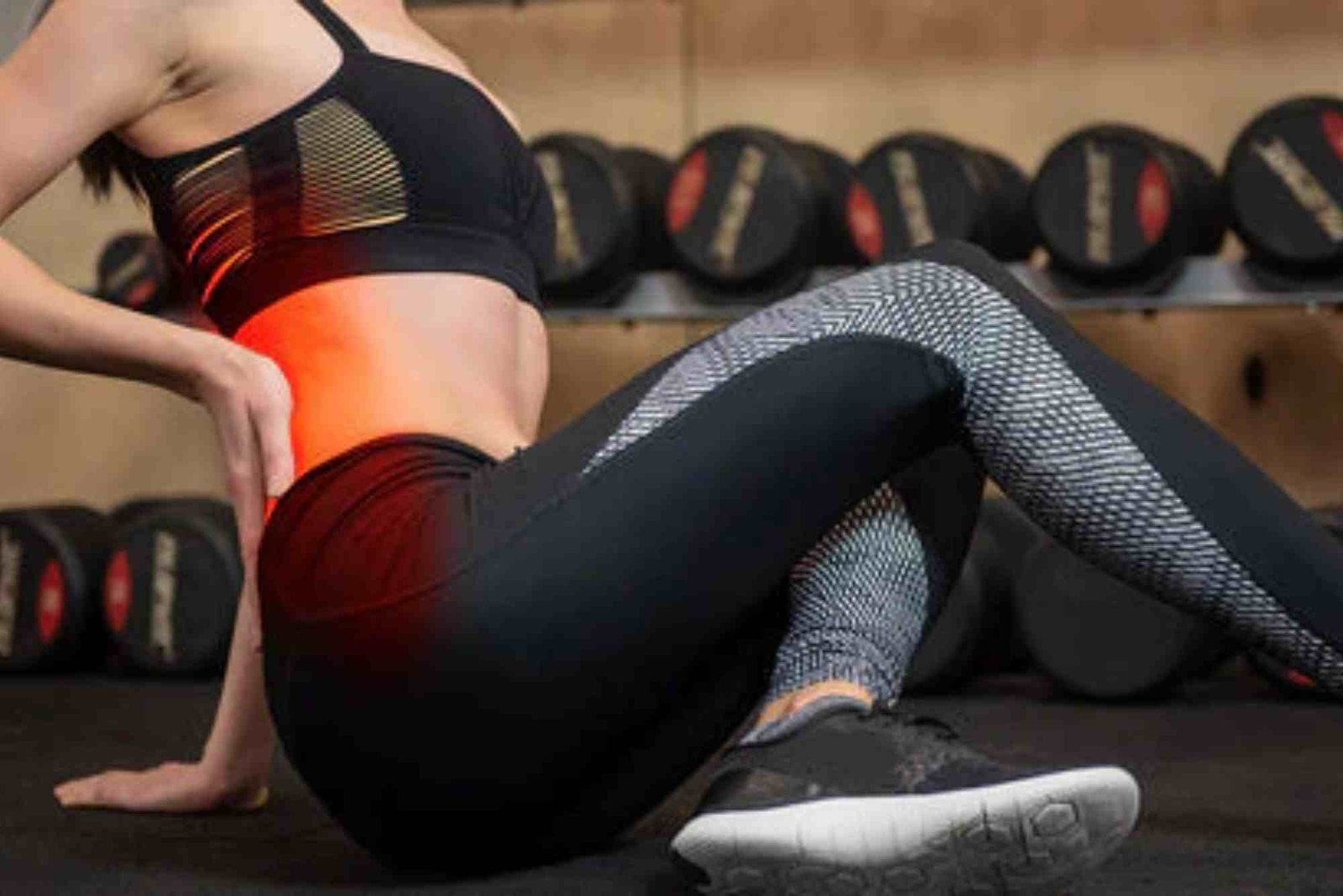Going to the gym during your period is a common dilemma for many women. Some may feel unsure about whether it’s safe or beneficial to exercise during this time of the month. In this article, we’ll explore the dos and don’ts of working out during menstruation, providing you with insights to help you make informed decisions about your fitness routine.
Understanding Your Body
Back pain is a widespread issue that can affect anyone, regardless of age or physical condition. Understanding the causes is key to managing and preventing it. While back pain can arise from a simple strain, it can also indicate more serious health problems. The following sections explore the primary causes.
Muscle or Ligament Strain
One of the most common causes of back pain is muscle or ligament strain. This occurs when the back muscles are overworked or overstretched, often due to improper lifting techniques, sudden movements, or overuse. Strain can result in acute pain, stiffness, and limited movement. In some cases, repetitive motions or prolonged poor posture may also weaken the back muscles over time, making them more prone to injury.
Herniated or Bulging Discs
The spinal discs act as shock absorbers between vertebrae, allowing the spine to move smoothly. A herniated or bulging disc occurs when the disc’s soft interior pushes out through a crack in the exterior. This can irritate nearby nerves, resulting in sharp, shooting pain, numbness, or tingling. In severe cases, it may cause sciatica—a condition where the pain radiates down the leg.
Degenerative Disc Disease
As people age, the spinal discs naturally wear down, leading to degenerative disc disease. This condition reduces the disc’s ability to cushion the vertebrae, resulting in stiffness and chronic back pain. Degenerative disc disease can also lead to the development of bone spurs or herniated discs, exacerbating pain.
Arthritis and Osteoporosis
Arthritis, particularly osteoarthritis, can affect the lower back, causing inflammation in the joints and pain during movement. Osteoporosis, a condition that weakens bones, may lead to fractures in the spine’s vertebrae, resulting in sudden and severe back pain.
Poor Posture and Sedentary Lifestyle
Modern lifestyles, characterized by long periods of sitting or standing in poor postures, contribute significantly to back pain. Prolonged inactivity weakens the muscles that support the spine, causing discomfort and pain. Regular exercise and mindful posture adjustments can help prevent this type of back pain.
Injuries and Accidents
Traumatic injuries from car accidents, falls, or sports can cause significant damage to the spine or surrounding tissues. Depending on the severity of the injury, back pain may be short-term or lead to chronic issues that require ongoing treatment.
Before diving into whether it’s okay to hit the gym during your period, it’s crucial to understand your body’s signals. Every woman experiences menstruation differently. While some may feel energized and motivated to exercise, others might experience fatigue, cramps, or discomfort. Listen to your body and adjust your workout routine accordingly.

Dos of Gym Workouts During Periods
Stay Hydrated
Proper hydration is essential during menstruation, especially if you’re engaging in physical activity. Drink plenty of water before, during, and after your workout to replenish lost fluids.
Choose Low-Impact Exercises
Opt for low-impact exercises such as walking, yoga, or swimming. These activities can help alleviate cramps and reduce discomfort while still keeping you active.
Listen to Your Body
Pay attention to how you’re feeling during your workout. If you experience any unusual pain or discomfort, don’t hesitate to take a break or modify your exercises.
Practice Self-Care
Prioritize self-care during your period. Incorporate relaxation techniques such as stretching, meditation, or deep breathing exercises to help manage stress and ease menstrual symptoms.
Don’ts of Gym Workouts During Periods
Avoid Intense Workouts
While exercise is generally beneficial during menstruation, high-intensity workouts may exacerbate symptoms such as cramps and fatigue. Avoid pushing yourself too hard and opt for gentler forms of exercise instead.
Skip Heavy Lifting
If you regularly engage in weightlifting, consider reducing the intensity or taking a break during your period. Heavy lifting can increase intra-abdominal pressure and worsen menstrual cramps.
Ignore Warning Signs
If you experience severe pain, dizziness, or other unusual symptoms during your workout, stop immediately and seek medical attention if necessary. Ignoring warning signs could lead to injury or further health complications.

going to the gym during your period is entirely possible with the right approach. By listening to your body, choosing appropriate exercises, and prioritizing self-care, you can maintain your fitness routine while managing menstrual symptoms effectively. Remember to be mindful of your limits and make adjustments as needed to ensure a safe and comfortable workout experience.
Gym Motivation Quotes
Gym Motivation Quotes Sometimes all it takes is a few words to ignite our inner fire. Motivational quotes can serve as powerful reminders of our strength and determination. Whether it’s pushing through a tough workout or staying consistent with our fitness goals, inspirational words can provide the extra boost we need to keep going.”
Amana Healthcare
Amana Healthcare is a leading provider of specialized healthcare services, offering rehabilitation, long-term care, and home healthcare solutions. With a team of skilled professionals and state-of-the-art facilities, Amana Healthcare is committed to delivering personalized care to patients of all ages and medical conditions. From post-acute rehabilitation to chronic disease management, Amana Healthcare strives to improve the quality of life for individuals and families across the region.





